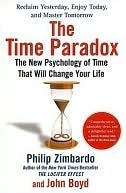More on this book
Kindle Notes & Highlights
Read between
December 16 - December 23, 2018
It makes sense that belief in yourself would influence your behavior, but it turns out your conceptions of other people influence their behavior as well.
The results show that parents who discuss financial matters with their children influence the children’s financial behavior, teaching them the importance of saving money. The effects of such early socialization extend into adulthood, and key predictors of children’s financial success are their fathers’ conscientiousness and their parents’ future orientation.
It turns out that when we practice succeeding at a task mentally, our performance actually does improve.
In every deliberation, we must consider the impact on the seventh generation . . . even if it requires having skin as thick as the bark of a pine.
The time you enjoy wasting is not wasted time. —Bertrand Russell
Well, one simple mindfulness technique is to touch the doorjamb every time you walk through a door. As you touch it, concentrate on that present moment, its sights, sounds, and smells, and on the door of experience that has just opened for you. This habit can help keep you grounded in the present and open to experiencing happiness more fully. If you are like us, you will walk by more doorjambs, head down, than you will touch.10
According to the Dalai Lama, even the least enlightened among us can immediately apply two simple techniques to living. The first is to identify the things in your life that make you happy, and do more of them. Like mindfulness, this technique seems simple enough, but it is difficult to do. Pursuing happiness takes time, patience, and honesty. What you once liked can change, and it can take courage to admit that to yourself and others. Be prepared for dead ends and disappointment, but be sure to enjoy the swim. The second technique is the reverse side of the first. Identify the things in your
...more
Business and investing are actually racing marathons, but our culture generally treats them as though they were sprints.
A truly successful capitalism would focus on creating profitable businesses that serve the needs of society and its members over generations, not quarters. Greed-driven capitalism is self-serving and treats everyone else and the environment as expendable. It becomes a kind of administrative evil wherein bottom-line profit projections are the ends that justify the immoral and unethical means by which they are attained; the procedure is “anything goes,” if the company’s legal counsel can rationalize it.
Kahneman and Tversky showed that people prefer to take risks rather than accept certain losses. In Kahneman and Tversky’s words, people are risk-seeking in the domain of losses.


